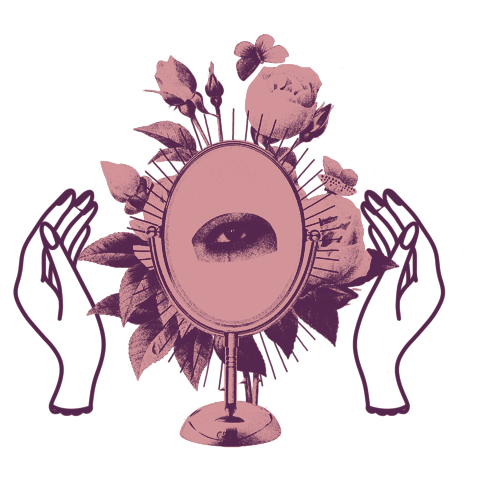Signs and symptoms
Knowing the signs and symptoms associated with mental wellbeing is the first step to improving your mental health state. Not only this foundation is necessary for us to pursue personal health and know our own needs, it equips us to be ready to help friends, family and peers who may find themselves struggling. Untreated mental healrt disorders can then lead to long-term suffering, decline in quality of life, social isolation and even to suicide.
If you are willing to know more about this topic, approach the section Multimedia.

Children and adolescents
Child-friendly version: signs & symptoms
- How od I feel:
- I cry more often.
- I feel sad/anxious/upset for a long period of time.
- I feel tension.
- I worry a lot (“I’ll go crazy”,”I won’t be able to cope”).
- My self-esteem:
- I feel helpless.
- I feel like I just can’t ever do anything right.
- I feel like nothing.
- My interest and focus:
- I’m fed up with everything.
- Concentration and tidedness:
- I have trouble sleeping (cannot fall asleep easily, feeling very sleepy during the day,
waking up at night without any reason, having frequent nightmares…). - I am tired for no reason.
- I am unable to rest and relax.
- I am not able to focus on my school work/ my grades got suddenly worse.
- I have trouble sleeping (cannot fall asleep easily, feeling very sleepy during the day,
- I often have a headache/ stomachache.
- I lost my appetite.
- For a long time I hated my body/ how I look/myself.
- I see or hear things others don’t.
- I want to hurt myself or I am hurting myself intentionally.
Adult version: signs & symptoms
- Poor school performance.
- Persistent boredom.
- Frequent complaints of physical symptoms, such as headaches and stomachaches.
- Sleep and/or appetite problems like sleeping too much or too little, nightmares, or sleepwalking.
- Behaviors returning to those of a younger age (regressing), like bedwetting, throwing tantrums, or becoming clingy.
- Noncompliant or aggressive behaviors.
- More risk-taking behaviors and/or showing less concern for their own safety.
- Low self-esteem.
- Poor body image.
- A tendency to be highly self-critical.
Adults and elderly
Recognising symptoms is key, as unfortunately many mental health problems never get diagnosed and treated. Untreated mental health disorders may lead to prolonged suffering, a drop of quality of life, social isolation and suicide.
The following signs may be symptoms of mental health disorders
- Excessive fatigue (feeling tired throughout the day on most days).
- Performance drop (having trouble focusing, remembering, making decisions, handling tasks you had no problem with previously).
- Sleep problems (sleeping less or more than usual, taking longer to fall asleep or waking up repeatedly through the night).
- Lost interests, lost sense of purpose (loosing the pleasure from doing things you used to enjoy like hobbies, work, activities with friends).
- Withdrawal from friends and social interactions (spending much more time alone than you used to).
- Decreased sex drive or impotence.
- Irritability (persistent feelings of restlessness, impatience, frustration, anger or an unusually short temper).
- Mood swings (uncontrollable emotions, going from angry and irritated to crying in a short time).
- Sadness and pessimism (feeling sad, desperate, lonely, in some cases crying a lot).
- Hopelessness (not being able to imagine a better future, may include persistent feelings of pointlessness, worthlessness, inappropriate guilt or self hate).
- Anxiety:
- Nervousness, restlessness, or feeling tense.
- Feelings of danger, panic, or dread.
- Rapid heart rate.
- Rapid breathing.
- Increased or heavy sweating.
- Trembling or muscle twitching.
- Trouble focusing or thinking clearly about anything other than the thing you’re worried about.
- Changes in appetite and weight (not enjoying food as much as you used to, having to push yourself to eat, or overeating when experiencing stress or anxiety, loosing or gaining weight unintentionally).
- Psychosomatic symptoms (such as persistent headaches, pains, cramps, digestive problems that don’t respond to treatment).
- Substance abuse (consuming alcohol or other drugs of abuse more frequently and / or in larger quantities).
- Thoughts about death (considering death might be better then life as it is, thoughts like “it would be better not to be,” up to planning suicide).
Signs of depression in the elderly
Generally the same signs and symptoms apply as for younger adults, however depression in the elderly is often overlooked, as some symptoms may wrongly be attributed to old age or dementia. If an elderly person in your environment is experiencing symptoms such as low mood, loss of interests, irritability, mood swings, substance abuse, a drop in cognitive performance (troubles focusing, remembering, handling tasks), or frequently talks of death, take them to see their GP or a psychiatrist to evaluate depression.
Solution
If you or another experiences some of these symptoms mildly, pay more attention and care to your mental wellbeing, you can find some suggestions in the Self-care section of this web.
If you or another have been experiencing these symptoms for a longer period of time, if the symptoms are severe or overwhelming, or thoughts about death have occurred, it’s time to seek professional help. There are various treatments available, from psychotherapy and medications to lifestyle changes. No matter what you will choose for yourself, the first step is getting help. Please go to the First aid section and contact relevant services.
